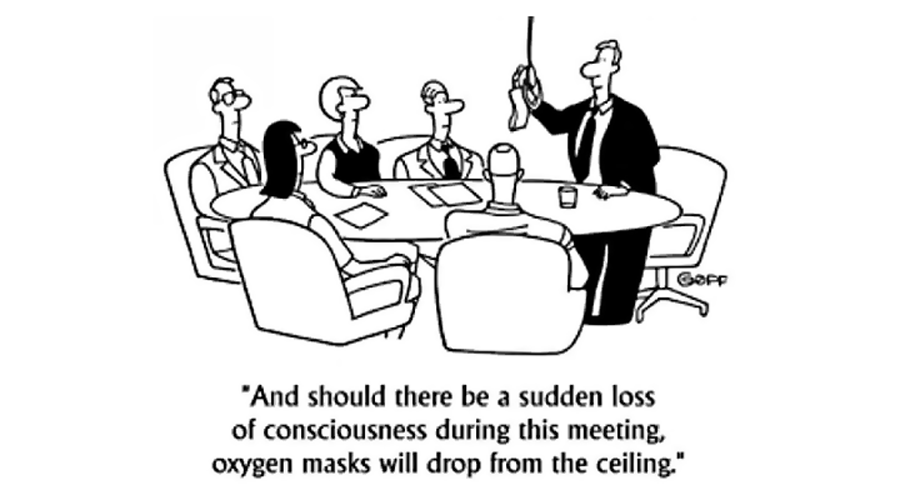March 2018 - The FoCuSeD™ Facilitator eNewsletter

Proven Tips for Productive Meetings by Gary Rush, IAF CPF
There have been a bunch of articles about how meetings don’t work. There have also been lots of suggestions to make them work: tools, artificial timing, etc. Meetings have value and are essential to the success of any organization – they need to be taken seriously. The thing is, meetings work when they are planned and structured. The following are my proven tips to make them productive.
“Tools are not the answer. Artificially shortening meetings is not the answer and neither is canceling meetings.”
Before the Meeting
- Prepare – Take the time to call a few of the attendees to identify if there are specific issues to discuss, specific decisions that need to be made, or specific people who need to attend.
- Create a Charter – A charter fixes a lot of issues. Write out the purpose (why the meeting is being called), the scope (what is being discussed or not discussed), and the outcomes (what the people will walk away with).
- Invite the Right People – My criteria are simple – do they have the needed knowledge and do they have the authority to make decisions.
“If you add up the combined salaries of those attending he meeting, it amounts to a great deal of money, so make it work!”
During the Meeting
- The Agenda – I seriously tell my students that they have my permission to leave any meeting that does not have an agenda. An agenda shows that you respect the time others are investing by attending the meeting. This also enables you to keep the meeting on track and attendee discussions are easily brought back on-track.
- Establish Norms of Behavior – Too often distractions sidetrack a meeting (people answering email, looking at their phones, etc.) and the only way to manage this is to have the attendees agree on norms of behavior (also called ground rules). You can suggest a few, then ask the attendees if they agree and/or want additional norms. This helps everyone know what’s expected.
- Keep to the Schedule – Be diligent in starting on time and ending on time, it helps people know that you are serious about making the meeting productive. Manage how long you discuss topics. Always plan to spend a few minutes reviewing what the meeting accomplished and define/assign next steps; I’ve never been to a meeting where nothing had to happen afterwards.
After the Meeting
- Follow Up – With next steps defined/assigned, you can follow up with those responsible and ensure that the value of the meeting continues.
We need to meet, so let’s make the meetings valuable to us and to our organizations. The extra effort it takes to make a meeting productive is minimal and makes a significant difference. Let’s do this! ![]()

